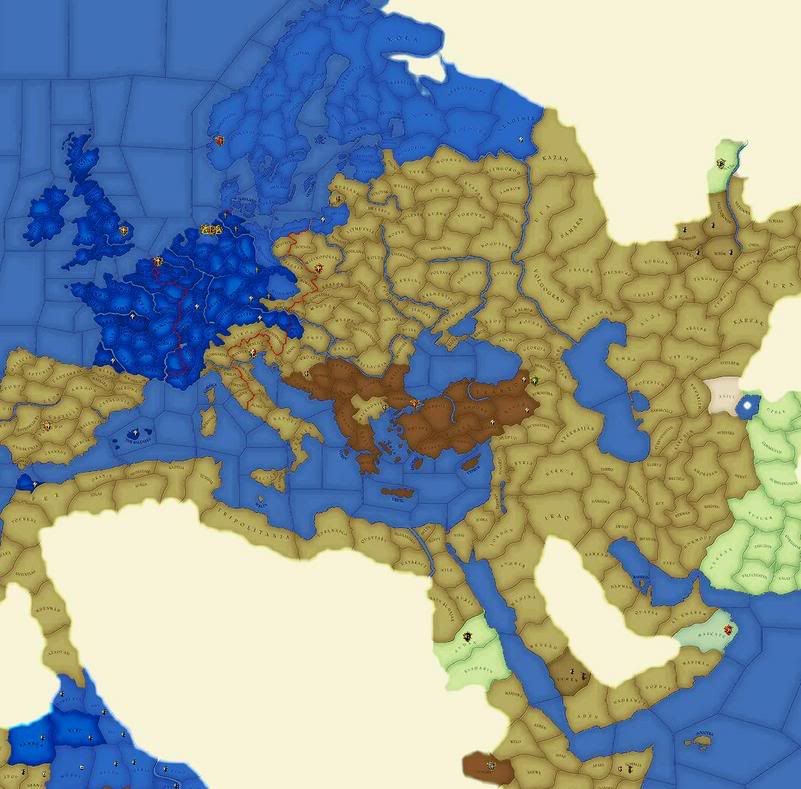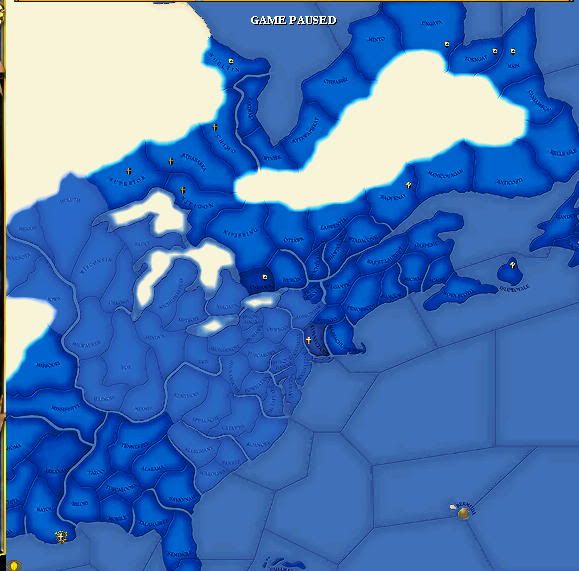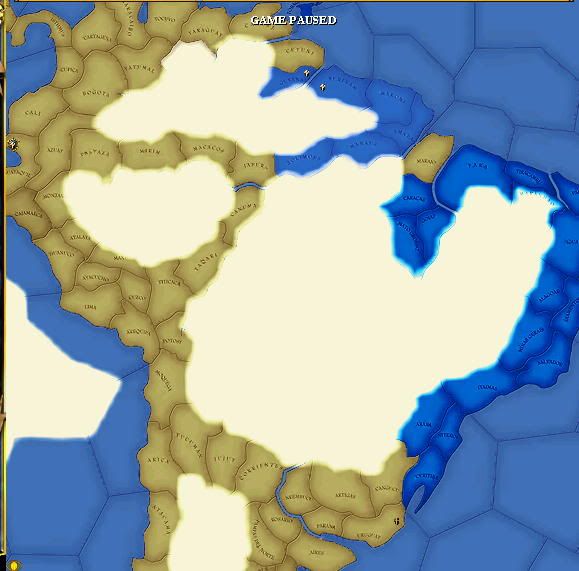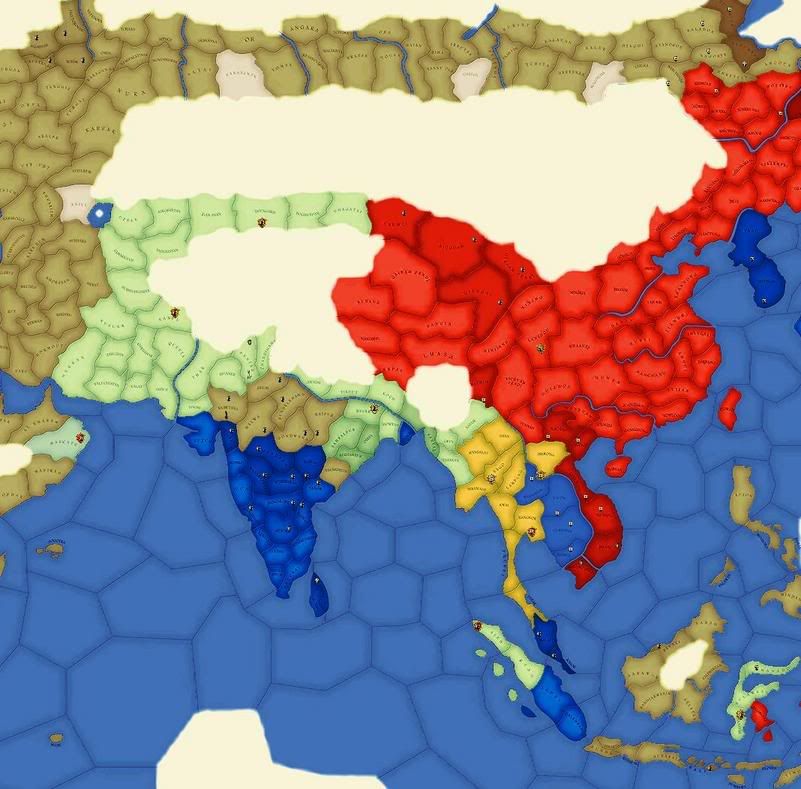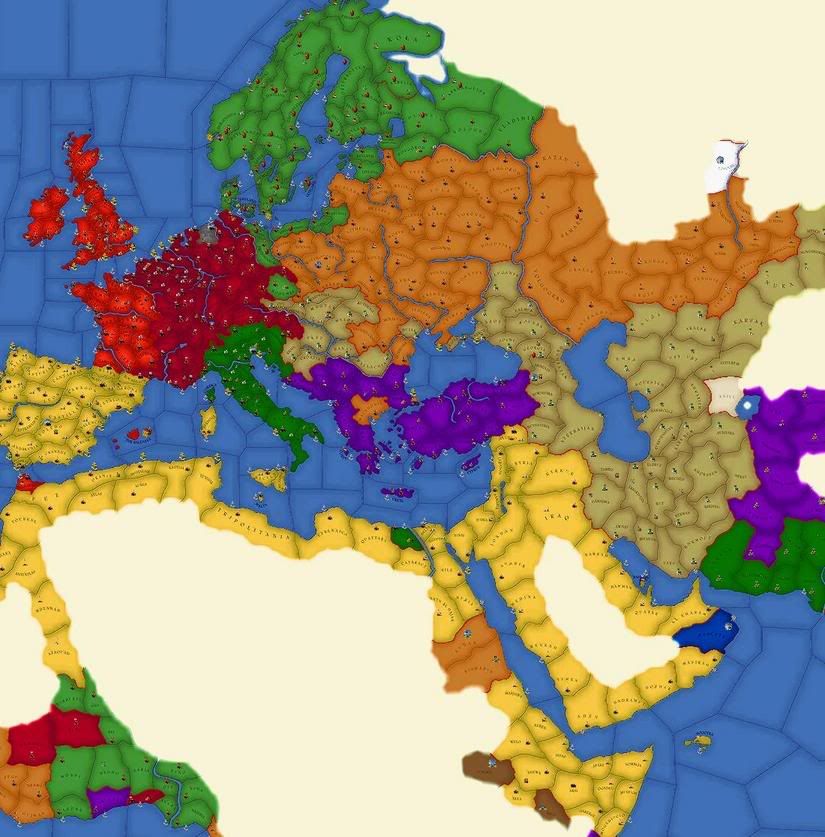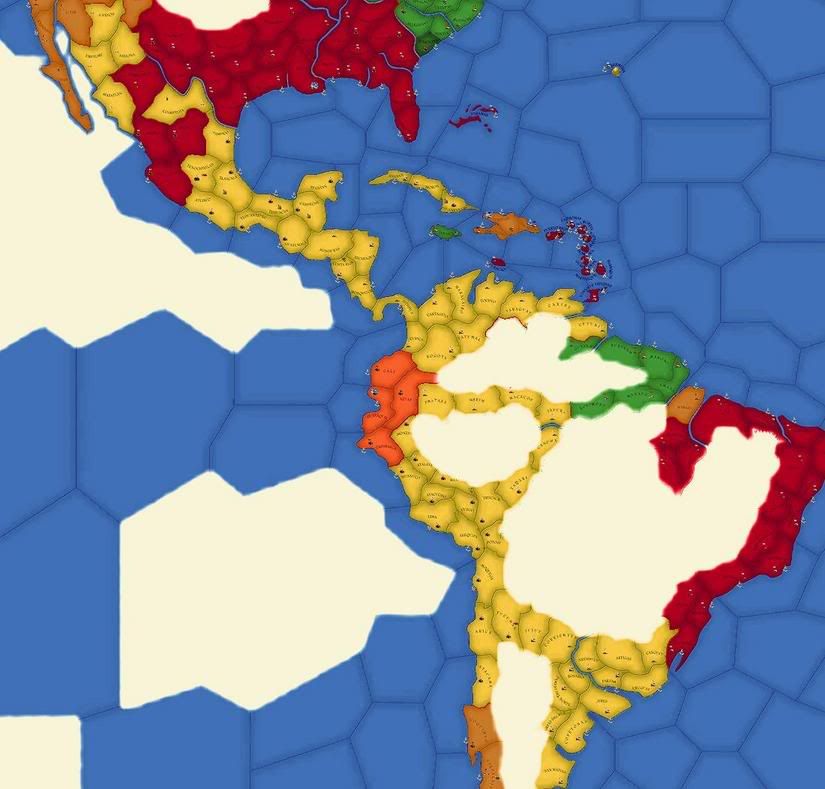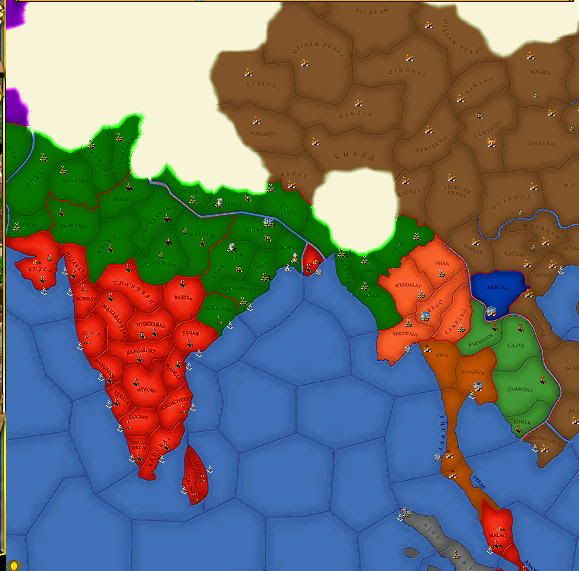Early September, 1782
Warsaw, Poland
The sack was winding down. It was the third day, and most of the portable goods had been taken; the women were long since distributed among the units or else discarded, and the ransomable men had been found. The worst of the flames had died down, though a sour smoke and a thin layer of soot still hung over everything like a miasma of war.
Most of the troopers had given up on the city and gone to find better lodgings outside, where there was no smoke to make the eyes itch and the throat dry. Ragnvald and his friends, though, had found an excellent wine cellar on the first day; consequently, they had missed out on the gold and other portable loot, not to mention the women. It had been a really glorious binge, but none of them wanted to leave Warsaw without some memento; thus they were among the last prowlers in the streets.
Pekka had found a tiny golden crucifix on the body of a nun, overlooked no doubt because her killer was drunk on the contents of the bottle he had used to slash her throat; but apart from that, they'd had no luck at all. Ragnvald was getting bored and thirsty, and beginning to think that a Warsaw memento wasn't so important after all; or maybe he could buy one, trinkets would be a glut on the market for a while after this. That was when he spotted the boy - only a quick glimpse of a face in a second-floor window, swiftly withdrawn; but hungover or not, Ragnvald had the alertness of a battle-trained Yngling. He brightened instantly; anyone still alive would surely have something to drink, and perhaps some loot as well - he knew his comrades; if the boy had been seen before now, he would surely have been killed or captured. It followed that the house had not been thoroughly searched. Anyway, even if there was no loot, they could rough the boy up a bit, for fun; come to think of it, Harald the corporal wasn't any too particular with where he got it, and it would be good to have him owing Ragnvald a favour.
Shouting to his comrades, Ragnvald advanced carefully on the building where he'd seen the face; there was no use in being careless, people got killed just as dead from a holdout's gun as in storming a defended breach. But no barrel poked from the window to threaten him. His friends were behind him as he ran up the rickety staircase inside; it was hopeless to try sneaking up on anyone on that surface, so speed was his best option. Fortunately the boy had no gun; only a knife flashing towards his face greeted him as he burst in the doorway. He swayed aside in the best Agoge style, but his reactions were slowed by the hangover, and the knife grazed his cheek. A stril had actually touched him in close combat; he was never going to live this down. Angry, he grabbed the boy's arm and twisted until something gave; the knife dropped, and Ragnvald snatched it from the air, punching it neatly between the Pole's ribs. Harald would just have to go without for a while - then again, maybe he wouldn't; he really wasn't very particular.
Looking at what the boy had been guarding, Ragnvald suddenly felt much more cheerful; a young woman, perhaps year younger than the boy's seventeen or so. It had been a long time, and the women that followed the Yngling army were not the ones with any other choice; but here was a lovely dark-haired beauty, and him first in line. Trinkets be damned, it was shaping up as a fairly good sack after all.
Afterwards he felt a little empty, and tired; at least the girl had stopped screaming, and was only weeping quietly while Pekka took his turn. He became aware of a background sound he had not noticed while he was busy; the boy was praying.
"Benedicta tu in mulieribus..."
The sacred words made a weird counterpoint to the sounds of rape. The boy gasped and wheezed, barely able to get the words out with the air from one lung. Not quite sure why, Ragnvald got up and stood over the boy, watching as he struggled to draw breath through the pain of a collapsed lung.
"...Mater Dei ora pro nobis peccatoribus..."
The gasped-out words trailed off. It seemed the Pole would go to his death without finishing his last prayer. Unable to draw breath, his eyes appealed mutely to the Yngling; and in spite of what he'd just done, Ragnvald felt something in him answer. Bending down, he softly took up where the boy had left off : "Now, and in the hour of our deaths. Amen."
His knife flashed, once. Then he left that house, and that city.
Warsaw, Poland
The sack was winding down. It was the third day, and most of the portable goods had been taken; the women were long since distributed among the units or else discarded, and the ransomable men had been found. The worst of the flames had died down, though a sour smoke and a thin layer of soot still hung over everything like a miasma of war.
Most of the troopers had given up on the city and gone to find better lodgings outside, where there was no smoke to make the eyes itch and the throat dry. Ragnvald and his friends, though, had found an excellent wine cellar on the first day; consequently, they had missed out on the gold and other portable loot, not to mention the women. It had been a really glorious binge, but none of them wanted to leave Warsaw without some memento; thus they were among the last prowlers in the streets.
Pekka had found a tiny golden crucifix on the body of a nun, overlooked no doubt because her killer was drunk on the contents of the bottle he had used to slash her throat; but apart from that, they'd had no luck at all. Ragnvald was getting bored and thirsty, and beginning to think that a Warsaw memento wasn't so important after all; or maybe he could buy one, trinkets would be a glut on the market for a while after this. That was when he spotted the boy - only a quick glimpse of a face in a second-floor window, swiftly withdrawn; but hungover or not, Ragnvald had the alertness of a battle-trained Yngling. He brightened instantly; anyone still alive would surely have something to drink, and perhaps some loot as well - he knew his comrades; if the boy had been seen before now, he would surely have been killed or captured. It followed that the house had not been thoroughly searched. Anyway, even if there was no loot, they could rough the boy up a bit, for fun; come to think of it, Harald the corporal wasn't any too particular with where he got it, and it would be good to have him owing Ragnvald a favour.
Shouting to his comrades, Ragnvald advanced carefully on the building where he'd seen the face; there was no use in being careless, people got killed just as dead from a holdout's gun as in storming a defended breach. But no barrel poked from the window to threaten him. His friends were behind him as he ran up the rickety staircase inside; it was hopeless to try sneaking up on anyone on that surface, so speed was his best option. Fortunately the boy had no gun; only a knife flashing towards his face greeted him as he burst in the doorway. He swayed aside in the best Agoge style, but his reactions were slowed by the hangover, and the knife grazed his cheek. A stril had actually touched him in close combat; he was never going to live this down. Angry, he grabbed the boy's arm and twisted until something gave; the knife dropped, and Ragnvald snatched it from the air, punching it neatly between the Pole's ribs. Harald would just have to go without for a while - then again, maybe he wouldn't; he really wasn't very particular.
Looking at what the boy had been guarding, Ragnvald suddenly felt much more cheerful; a young woman, perhaps year younger than the boy's seventeen or so. It had been a long time, and the women that followed the Yngling army were not the ones with any other choice; but here was a lovely dark-haired beauty, and him first in line. Trinkets be damned, it was shaping up as a fairly good sack after all.
Afterwards he felt a little empty, and tired; at least the girl had stopped screaming, and was only weeping quietly while Pekka took his turn. He became aware of a background sound he had not noticed while he was busy; the boy was praying.
"Benedicta tu in mulieribus..."
The sacred words made a weird counterpoint to the sounds of rape. The boy gasped and wheezed, barely able to get the words out with the air from one lung. Not quite sure why, Ragnvald got up and stood over the boy, watching as he struggled to draw breath through the pain of a collapsed lung.
"...Mater Dei ora pro nobis peccatoribus..."
The gasped-out words trailed off. It seemed the Pole would go to his death without finishing his last prayer. Unable to draw breath, his eyes appealed mutely to the Yngling; and in spite of what he'd just done, Ragnvald felt something in him answer. Bending down, he softly took up where the boy had left off : "Now, and in the hour of our deaths. Amen."
His knife flashed, once. Then he left that house, and that city.


